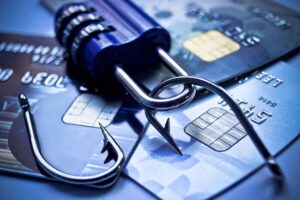Money comes and, sometimes even more quickly, it goes. In today’s expanded age of one-click shopping and in-app purchases, the power to claw back cash is like a magic key for buyers. One such buyer in our orbit lately said about an unsatisfactory purchase, “I’ll just dispute the charges.” For some patrons, that process is simple and effective. For others, like those card-holders whose children racked up $245 million in charges while playing Fortnite – charges the U.S. Federal Trade Commission said lacked parental consent – the process was not so simple. So what do you do when, like a woman in Texas, your son accidentally orders 31 cheeseburgers from McDonald’s, or like parents in New Jersey, you find your son has ordered $2,000 in furniture from Walmart? What if you’re the merchant who delivered the order? Are accidental buys the only reasons you might be hit with a disputed charge?
For both shoppers and merchants, it’s important to understand how debit card disputes work. We’ll explain what the debit card dispute is, how they function, how they’re investigated, and what happens after the investigation wraps up.
What is a debit card dispute?
Most major e-commerce sites create layers of protection for each party to a transaction, but savvy debit card holders know they have a secret ace in the hole: raising an objection, if you will. The process can be as simple as a phone call. For people who notice a charge they didn’t authorize, find that they were not delivered a service or item they did authorize payment for, or were delivered goods and services that did not meet their expectations, the dispute allows them to have the charge knocked off of their transactions list. The same applies to cardholders who returned an item and did not receive a refund, were charged incorrectly, or were charged more than once. Debit cardholders get to keep the money if the bank that issued their debit card sides with the customer. The refund to the customer is essentially a chargeback or return of funds to the consumer.
How do debit card disputes work?
Imagine using a travel booking service to pay for a night’s stay at a hotel in a foreign country. When you arrive, you make your way to the address and hope to get some sleep. Instead, the location says they have no record of your booking and no vacancy to boot. It’s a disputed charge waiting to happen. Your first move might be the very one the merchant hopes you’ll try: contact them. In our example, the hotel with no record might refer you back to the travel agency.
The travel agency then has the opportunity to make it right. Depending on what the patron requests, they might create a new booking in a different hotel or refund the charge to the debit holder’s account, having not delivered the service as expected. For merchants, working with their clients can be a worthwhile priority. They avoid fees associated with chargebacks and can strengthen an existing relationship with their customer if they handle the situation well.
Debit card holders are not required to contact the merchant, however. They can easily skip this step and go straight to the bank that issued their card, requesting a chargeback. The bank will likely ask the reason, issue a temporary credit, and then initiate an investigation.
How are debit card disputes investigated?
Banks will start their investigation within ten days, but they are allowed up to 45 days to complete it. Here’s where the sleuthing starts. Trained professionals in fraud and debit card disputes will look into the charge, combing through the situation for proof of what transpired. They’ll take a look at the evidence and allow the merchant to submit their own as well.
What happens after a debit card dispute investigation?
Once the bank has done their due diligence and examined the records, they’ll make a decision. If they side with the debit card holder, the temporary credit is made final. The merchant loses the money permanently and often incurs fees both as a one-time penalty and on an ongoing basis. Merchants with too many chargebacks may risk losing their ability to use a merchant account and could also be required to set aside funds as their reserve to hedge against future chargebacks.
Still have questions? Explore the comprehensive coverage of these issues and more in the BankersHub Debit and ATM Card certification. We cover how to effectively handle debit card purchase disputes, the limits of your liability, documentation compliance and requirements, and more. Our educational modules are tailored to financial professionals. Whether you’re a seasoned professional looking to stay nimble and knowledgeable, a current or rising leader, or a financial guru, the exhaustive BankersHub library of learning tools is your ally.







